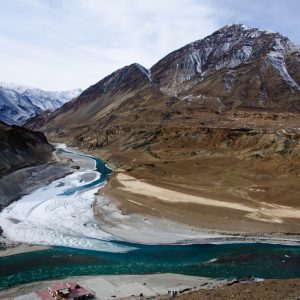The Stream, October 20: Coal Plant Too Risky For Sundarbans Water, Report Finds
The Global Rundown
Building a coal plant upstream of the Sundarbans mangrove forest in Bangladesh would bring unacceptable risks to water and habitat, according to a new report. The loss of forests on Mount Kilimanjaro is reducing the amount of water for rivers and communities. Countries across South Asia need to address black carbon emissions to stem the loss of glaciers in the Himalayas, scientists warn. A state commission in Michigan placed blame for the Flint water crisis on government officials at all levels, and made a series of recommendations to avert future emergencies. After water conservation declined, California is earning criticism for its decision to lift mandatory water restrictions.
“It’s not clear whether it is an understandable and reasonable relaxation or a turning away from the effort. You can see it as people still saving two-thirds of what they were saving in the worst water moment in modern history, or you can worry that people are saving one-third less than last year. It really appears to be a mixed picture.” –Felicia Marcus, chair of California’s Water Resources Control Board, responding to concerns about declining levels of water conservation after the state removed mandatory water use restrictions earlier this year. (The New York Times)
By The Numbers
450 Bengal tigers Number that likely live in the Sundarbans mangrove forest in Bangladesh. A proposed coal plant upstream of the forest should not be built because of the risk it poses to water quality and tiger habitat, according to a report released Tuesday by Unesco and the International Union for the Conservation of Nature. Climate Home
Science, Studies, And Reports
State, federal, and local government officials “failed the people of Flint and, by extension, all Michiganders,” according to a state commission report released Tuesday about the Michigan city’s lead-contaminated water crisis. The report made 36 recommendations to prevent similar crises in the future, including stronger oversight of the state executive branch, stricter requirements for water treatment operators, and greater transparency of information pertinent to public health. MLive
The loss of 13,000 hectares of forests to climate change and wildfires over the past four decades has reduced the amount of water captured by Mount Kilimanjaro in Tanzania, putting rivers and downstream communities at risk, according to a report by the United Nations Environment Programme. The report calls for major reforestation efforts to reverse the trend. UN News Centre
On The Radar
The build-up of black carbon on Himalayan glaciers is causing them to melt more rapidly, and scientists are asking countries throughout the region to jointly address the harmful emissions. Much of the black carbon comes from the burning of biofuels such as wood and cow dung in South Asia. The Third Pole
A news correspondent for Circle of Blue based out of Hawaii. She writes The Stream, Circle of Blue’s daily digest of international water news trends. Her interests include food security, ecology and the Great Lakes.
Contact Codi Kozacek




